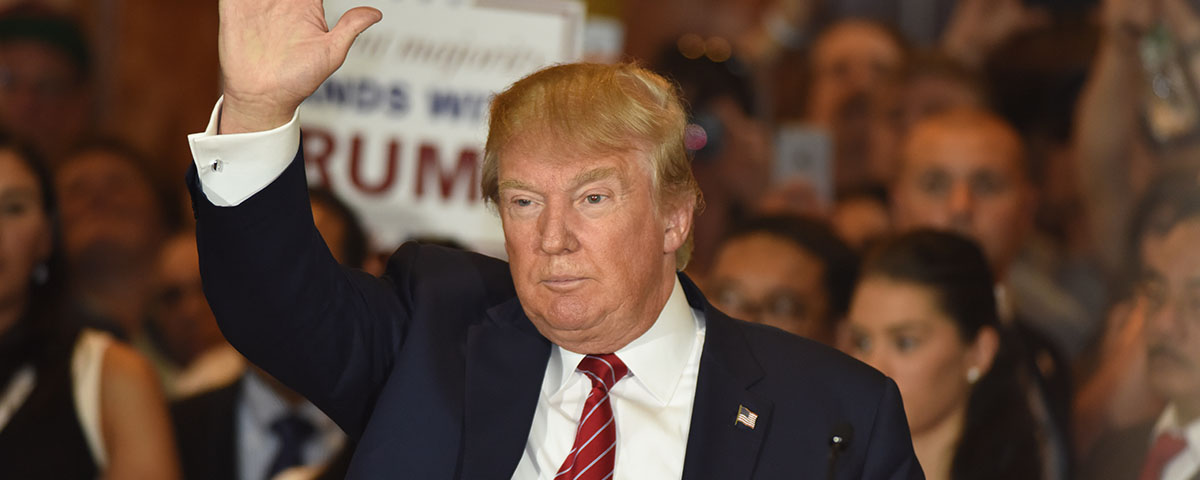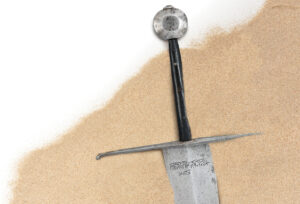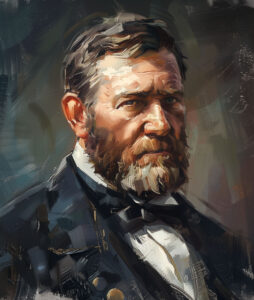For much of the summer and early autumn, Donald Trump, real estate tycoon and reality show star, hovered over the Republican presidential field like the Goodyear Blimp—big, bright and gas-filled.
While other contenders laboriously outlined their policies or repeated the tested one-liners of stump speeches, Trump winged it—and soared. Everything he said seemed to garner publicity, and even egregious blunders did not destroy him. Why would he be a good president? “I’m a deal maker,” he told Face the Nation. “I’ll make deals for this country.”
Trump benefited from his hard line on illegal immigration, and from having a media persona toughened in the tabloid culture of his native New York City. But he is also the latest political descendant of a long-dead English lord. Henry St. John, Viscount Bolingbroke (1678-1751), never crossed the Atlantic and died before the United States was even a gleam in the founders’ eyes. But his writing, especially his most famous work, The Idea of a Patriot King, would haunt the consciousness of the new nation. Bolingbroke’s patriot king became the model for the outsider that Americans periodically dream of—the anti-political politician who will shake up a dysfunctional system.
Bolingbroke was a natural insider. Witty and well-born, he entered Parliament at age 22 and the Cabinet at age 25. English politics was in flux—a new dynasty, the German house of Hanover, replaced the Stuarts, while Parliament and the factional leaders who ran it steadily siphoned power away from the throne. In these crosscurrents Bolingbroke lost his footing. He consistently backed sovereigns or would-be sovereigns who let him down, generally by dying before his plans for them could bear fruit; whenever England became too hot for him, he lived in exile in France.
Disappointed as a politician, he turned to journalism, abusing his enemies and arguing for political reform. In 1726 he started his own magazine, The Craftsman—“more read and attended to than any political paper,” wrote Samuel Johnson—and supplemented it with books and pamphlets. The Idea of a Patriot King appeared in 1749.
The vice of English politics, according to Bolingbroke, was corruption. Ministers bribed voters in parliamentary elections, and kept MPs in line by giving them lucrative patronage posts. Bolingbroke’s critique of England’s political seaminess was true, even commonplace. His solution was novel: The broken system, he argued, could be fixed only by a public-spirited sovereign who would inspire and lead Parliament himself. Since the patriot king would be born to power, he could not be bought, and since he did not belong to the world of ordinary politics he would represent the nation as a whole. “Instead of putting himself at the head of one party in order to govern his people,” Bolingbroke wrote, “he will put himself at the head of his people in order to govern, or more properly to subdue, all parties.”
Bolingbroke never returned to power, no matter how much he wrote—his fellow Englishmen knew him too well to trust him—but after his death his arguments found an audience among Americans trying to understand a remote Parliament that misgoverned them. George Washington owned a complete set of The Craftsman, part of the Custis library he acquired after marrying Martha in 1759. In 1771 a young Thomas Jefferson included Bolingbroke on a list of “a few only of the best books” on politics. In 1813 an old John Adams wrote that he had read Bolingbroke “more than fifty years ago, and more than five times in my life, and once within five years past.”
The founders did not want an American king, but they felt the appeal of Bolingbroke’s vision of an above-the-fray chief executive. The first presi-dent who matched that profile was Washington himself, the man who had won the Revolution and then gone home. One delegate to the Constitutional Convention even admitted that the office of the presidency had been “shaped” by his colleagues’ belief in Washington’s “virtue.” In presidential contests ex-commanders frequently bested civilian politicians. Andrew Jackson, William Henry Harrison, Zachary Taylor, Ulysses Grant and Dwight Eisenhower all rode military careers to the White House. More recently Colin Powell, chairman of the Joint Chiefs during the Gulf War, seemed primed to follow them. In the mid-’90s, against a background of unusually ugly partisan politics, his approval ratings were sky high. His 1995 cross-country tour promoting his memoir My American Journey was a dry run for a presidential campaign; crowds turned out to buy a book and get it signed by the general. Powell’s trial balloon descended only when he announced in November that he lacked “a calling…for political life.”
The 20th century saw the emergence of a new breed of outsider: businessmen candidates. Their political inexperience showed that they were untainted by the system, while their personal wealth guaranteed their independence. Wendell Willkie, a corporate lawyer and utility executive, was the first of the type. He had roots in both parties and ties to none; he was a delegate to the 1924 Democratic convention, but in 1933 he testified before the House against New Deal legislation setting up the Tennessee Valley Authority. In 1940 the GOP, desperate for a fresh face, tapped him to run against Franklin D. Roose-velt. He lost, but did better than FDR’s previous opponents. In 1992 H. Ross Perot, the data-processing billionaire, ran as an independ-ent. In June Perot actually led incumbent George H.W. Bush and Democratic challenger Bill Clinton in a Gallup Poll of a possible three-way race. Despite a strange display of petulance—he quit the race in July, then reentered it in October—he ended up winning almost 19 percent of the popular vote. Michael Bloomberg, promoter of the Bloomberg terminal who was even wealthier than Perot, was mayor of New York City from 2001 to 2013. Though nominally Republican, he explored an independent run for the presidency in 2008. Which brings us to The Donald.
Bolingbroke’s dream figure tempts us because he seems to stand outside the dirty scrum of ordinary politics. Sometimes this is literally true of American patriot kings. Perot ran, and Bloomberg considered running, as independents. When Willkie joined the GOP, one longtime Republican told him he didn’t mind the town prostitute joining his church but did not want her leading the choir on her first night.
The appearance of being apolitical, however, is often just that. Washington was a partisan Federalist by the end of his second term; Jackson governed as a partisan Democrat throughout his administration. Grant, formally a political newcomer when he first ran, had strongly supported the Republican Party’s goals during and after the Civil War. Before Zachary Taylor and Dwight Eisenhower began campaigning in earnest, no one knew which of the major parties they belonged to. But once they were in the White House—Taylor as a Whig, Ike as a Republican—they became cunning, even tough, politicians: Taylor threatened to hang anyone who opposed his plan to admit California as a free state; Ike quietly undermined his fellow Republican, the firebrand Senator Joseph McCarthy.
Patriot kings are a fantasy because governing is political, and partisanship is baked into politics. Parties are not mentioned in the Constitution, and the founders professed to abhor them. (“If I could not go to heaven but with a party,” wrote Jefferson, “I would not go there at all.”) Yet the founders themselves created America’s first two-party system—Federalists vs. Republicans—and parties, in different configurations, have marched on ever since.
If Trump goes the distance he will have to govern as politicians always have—by making alliances, cultivating loyalty, defining enemies, defending principles. More likely, he will give way to some ordinary pol. They bore and annoy us, but we keep turning to them.
Originally published in the February 2016 issue of American History magazine.





